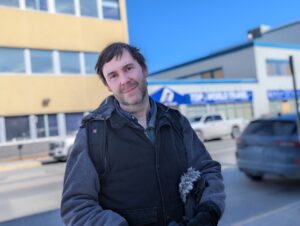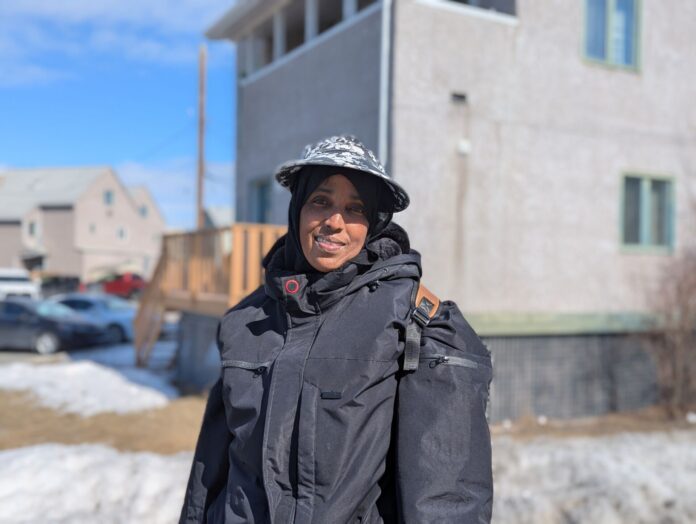With the federal elections upon us, people across the city of Yellowknife are hopeful of possibilities as the leadership of the territories and the country prepares to shift.
Folks stopped to talk with True North FM about feeling excited for change but also anticipating a hard road ahead.
“Everybody has a plan, but nobody’s really discussed how they plan to make it affordable for the everyday Canadian,” said one Yellowknifer.
Some people said they felt that access to the necessities is linked to access to communication and dialogue.
Ayan was out walking just outside the city and stopped to talk with True North FM. Ayan may be a newcomer to the city, but Yellowknife is her home.
“Because we are immigrants here, we want to make sure we have enough housing and proper health care. We have a lot of multilingual people here,” and having a space for everyone to speak and communicate is an important part of accessing basic needs, she explained.
“We want a government who are also responsible for the environment,” said Ayan.
Another Yellowknifer said that he wants the government to be “better prepared” for newcomers and immigrants coming to Canada. So that they can adapt more easily to their new life.
Rene lives in Yellowknife and feels that the main issue for most folks is the cost of living.
“It’d be nice to just have the cost of living go down. So that’s just anywhere from housing to groceries to utilities, all those things, literally just be going up, and it’s not really taken into consideration how it will impact seniors or those with disabilities or those from low-income families and it’s really pricing out,” said Rene.
Many Yellowknifers are finding that the cost of living is taking a toll on their ability to make ends meet. Rene said that accessing necessities will require a better dialogue between leaders and the public.
“(To the point of) people not being able to survive. I think that that is something that’s kind of been lightly touched, everybody has a plan, but nobody’s really discussed how they plan to make it affordable for the everyday Canadian,” Rene said.
Doug Johnston shared many similar concerns.
“Honestly, the main thing is financial security, with the cost of groceries going up so quickly. With things becoming more and more unsure, with the tariffs coming in, etc. It’s getting harder and harder to plan for your future. So it seems like after a few years, we don’t know where we’re going to be,” said Johnston.
One Yellowknifer talked about her road to recovery from addiction, which she said has proved to be a hard-won battle. Many of the treatment programs are not working because there is not much support for people once they leave the program, she said.
“Soon, they get out of there, they come back and they’ll go back, the same way.”
She has seen people lose everything because of addictions, and they often don’t realize that they are valuable people, that their lives are valuable.
“People on the street have said they have nothing. I say, don’t say that, you got your life.”
When addictions take a toll on relationships, it makes it very difficult for people to recover without support from recovery programs. Without family and community, people who are facing addictions are often left without any support, and there doesn’t seem to be much help out there for them. She said that really needs to change soon.
Stella Johnson was out getting some grocery shopping done in the city and stopped to talk with True North FM.
Johnson said that addictions and mental health are becoming more of a problem across N.W.T., especially in smaller communities. She wants to see a treatment centre that can help people overcome their addiction.
“They need to have a treatment centre here in the North and work with people,” she explained. “For better health and the community.”
Another concern is employment, said Johnson, who is worried about local people accessing training and jobs in the region. “Better job security means better quality of life,” she said.
Johnson said from what she has observed, job insecurity goes hand in hand with education. “When youth drop out of school, many of them end up unemployed or even on the street,” explained Johnson. And it comes back to having opportunities to move forward in training and education.
“This is the reason why there are lots of underage or even young adults on the street who are homeless. And I see that every day, it’s very sad.” She said that Reconciliation is another major issue connected with the education system, and residential school Survivors need to have access to supports and programs.
To help them, resources are needed, said Johnson.











